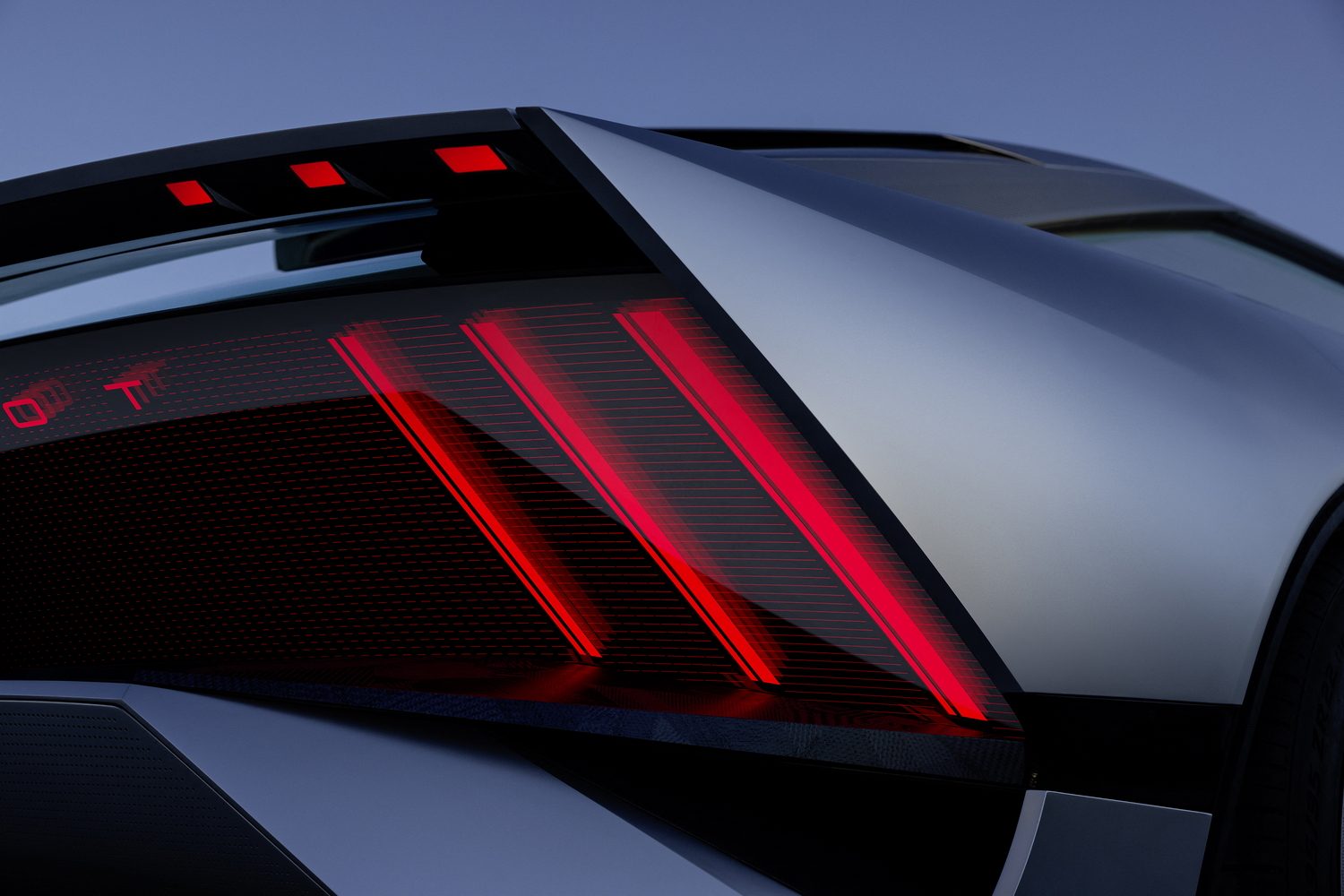Kicking off 2023, Peugeot has taken the wraps off its Inception concept car. As suggested by the name, it signals a new era at the French brand is it moves toward more electrification. The Inception previews an evolved design language - set to hit all of Peugeot's models from 2025 on - along with a new EV platform and a radical interpretation of the automotive cabin of the future.
Grab the 'Hypersquare'
Swipe through our image gallery and you'll see that the Inception concept features a rather odd-looking steering wheel. Actually, it's not called anything as prosaic as that, as Peugeot's designers have christened the rounded rectangle in front of the driver the "Hypersquare control system".
It has been designed so that the driver never has to take their hands off the steering wheel, with four large circles for gripping and a central touchscreen that can be operated by the driver's thumbs.
It forms part of a new take on the existing Peugeot 'i-Cockpit' layout. The other aspect is the "Halo Cluster", which displays information in a 360-degree format so that everyone inside the car, and even those outside, can see relevant data.
When in "level 4" autonomous driving, the Hypersquare retracts to free up space in the cabin. This - and indeed the shape of the wheel - is made possible by use of steer-by-wire technology. Peugeot has confirmed that it will introduce a production version of the Hypersquare in a next-generation car before 2030.
Sustainable raw materials
Less obvious in the pictures is the innovative use of new materials in the Inception. Moulded textiles, for example, reuse scraps of polyester fabric to create load-bearing or trim components in the cabin that require no further finishing. They come under the designers' "make previously invisible parts visible" mantra - in a bid to enhance simplicity and reduce the number of parts required.
Other examples of this approach include raw galvanised steel for framework and a recycled polyester with a metallic sheen referred to as "velvet" for the seats and floor covering. The seats themselves adapt to the body shape of their occupants using inflatable pockets recovered from classic seats. The chairs are also notably wide and yet there are no visible headrests above the window line of the car, giving them a retro appearance.
NASA-inspired glass and 'Fusion Mask'
There's a lot of glass on the Inception concept, so Peugeot used architectural material and a process pioneered by NASA for its astronauts' helmet visors to give it the desired thermal and anti-UV properties. The sharp, triangular design of the glasshouse is echoed in the new front end, which Peugeot calls the "Fusion Mask". The striking three-claw headlights, the central Peugeot shield badge and three horizontal light lines are all contained behind a single piece of glass, which also protects the array of sensors required for driver assistance technology. Despite the high-tech focus, there's more than a retro nod to Peugeots past in the new face of the Inception concept.
The triangular theme continues to the rear, where there's a dramatic slope from the bumper to the rear deck incorporating the expected three-claw LED lights. Above that is a stubby window and roof spoiler, reminiscent of the current Peugeot 408 fastback.
Along the flanks of the concept, door handles are done away with in the name of aerodynamic efficiency (and design minimalism), as are traditional door mirrors - replaced by cameras. The doors feature a messaging system and they can detect the approaching driver and passengers and the cabin is prepared accordingly.
Meanwhile, the stylised 20-inch alloy wheels feature forged textile inserts in the name of low drag, an illuminated Peugeot Lion badge and even mirror glass on the brake callipers for a unique appearance.
EV-focused Stellantis platform
The Inception is built on the new "STLA Large" platform, designed from the outset for electrification. At five metres long, the concept is longer than the Peugeot 508, for example. It is powered by a dual-motor, four-wheel-drive setup producing up to 680hp for a 0-100km/h time of less than three seconds. Using a 100kWh battery pack, and a claimed efficiency rating of 12.5kWh/100km, Peugeot says the concept could manage 800 kilometres between charges.
Recharging (possible through wireless inductive tech) allows for 150km of range added in just five minutes thanks to the 800-volt electrical architecture.
Though it is not expected that Peugeot will put a vehicle such as the Inception into production, it claims that it will inform its next generation of new cars. It also confirmed that it will launch five new fully-electric cars in the next two years.
















